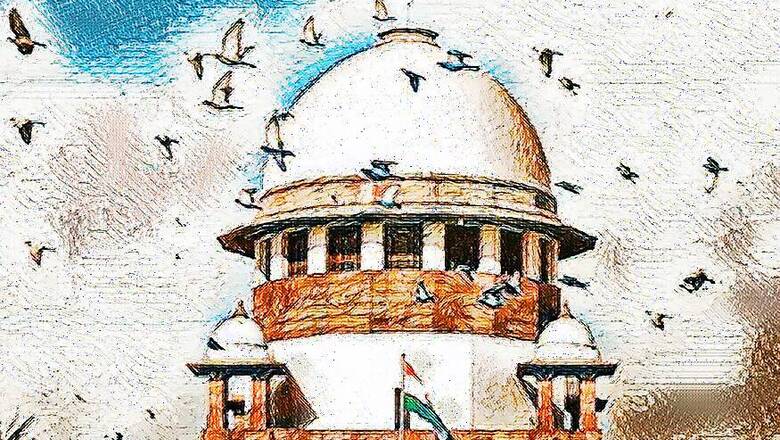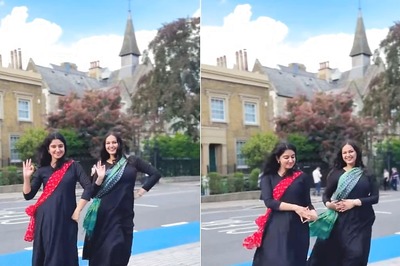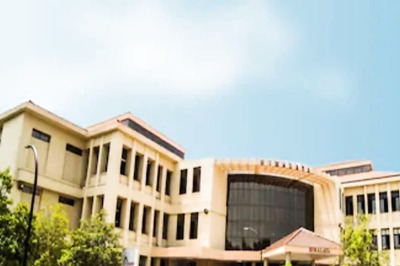
views
New Delhi: A Constitution bench of the Supreme Court, headed by Chief Justice of India Ranjan Gogoi, on Wednesday heard its own appeal against a Delhi High Court judgment that had held that the Supreme Court and the Chief Justice of India are “public authorities” under the Right to Information (RTI) Act.
Attorney General KK Venugopal, appearing on behalf of the petitioner, Supreme Court of India, said, “Disclosure of information will create hindrance in the free and independent discussion among Collegium judges".
The two primary issues before the court was whether disclosure of correspondence and file notes pertaining to a judge’s appointment can be made by the SC and whether there can be disclosure of assets by the judges.
The genesis of Wednesday's Constitution bench hearing lies in a 2009 case.
In 2010, a three-judge bench of the Delhi High Court, comprising the then Chief Justice A P Shah, Justice Vikramjeet Sen and Justice S Muralidhar, had upheld a single-bench judgment that the Supreme Court and the CJI have statutory duties to furnish information sought by citizens regarding the functioning and administration of the apex court.
The single bench had dismissed the challenge against an order of the Central Information Commission (CIC) whereby it had directed the Supreme Court’s Central Public Information Officer (CPIO) to provide the information requested by Subhash Chandra Agarwal for supply of information concerning declaration of personal assets of the SC judges.
Hence, primarily the issue before the Constitution bench was whether the office of the CJI comes under the RTI Act.
Also, whether the correspondence exchanged between the Collegium and Centre and file notings made in the process of appointment of judges are subject to disclosure under the RTI Act.
The Attorney General said, “Disclosure of file notings and reasons for not appointing/recommending a particular candidate as a judge would be highly against public interest. Such information should be absolutely confidential else Collegium judges can’t function.”
In recent memory, there have been cases where questions have been raised on how judges have been elevated by superseding other senior judges.
Stating that the Collegium ought to have a free and fair deliberation, Venugopal said, “Allowing disclosure of information will open a Pandora’s box."
Explaining the point, Venugopal stated if an SC collegium overlooked a high court chief justice for elevation “on ABC ground”, the question is how would the severability clause be applied?
"Will it be like giving B reason but withholding A & C reasons as they are personal in nature?" said Venugopal, referring to Section 11 of the RTI Act which pertains to the procedure to be followed on providing information related to third-party information.
Venugopal also made a case that disclosing such information would also hinder the reputation of a judge who did not get selected.
"If a judge is recommended by the Collegium for appointment superseding seniority, and an RTI application is filed to know the reason thereof, the person’s reputation needs to be protected by not disclosing personal information," argued the AG.
However, it is here that the SC stepped in for a balanced approach while disclosing information.
"We are on broader proposition — the extent to which information can be given without undermining independence of judiciary. Balancing of rights has to be done,” the CJI said.
The petitioner lawyer, who is also the Attorney General, also argued that correspondence between the Collegium and Centre on the appointment of judges would fall under Section 8(1)(j) of RTI Act which relates to personal information, the disclosure of which has no relationship to any public activity.
Regarding the disclosure of the assets of judges, the attorney general argued that information regarding assets of judges would be exempted from disclosure as it would fall under exemption clause of Section 8(1)(e) of the RTI Act that is information available to a person in his fiduciary relationship.
Fiduciary relationship is one where a party stands in a relationship of trust to another party and is generally obliged to protect the interest of the other party.
The AG also argued that all public servants are subject to law mandating disclosure of assets, but it was the "judiciary which seeks self-regulation."
In 1997, a full court of the Supreme Court had decided to pass a resolution wherein it was decided that judges would submit assets details to the CJI.


















Comments
0 comment